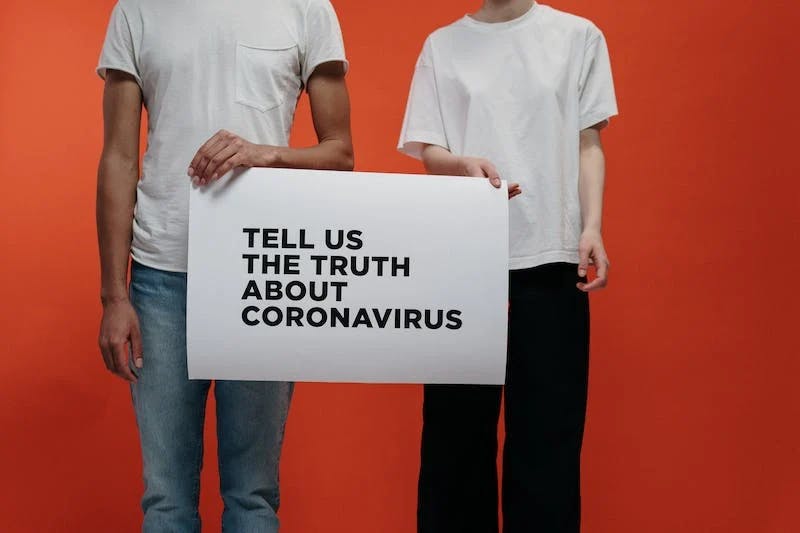The Cocktail Party Contrarian: Is Vindication a Petty Concern?
The restoration of a good name, wrongly stolen, matters a great deal to those who are victims, and we shouldn’t minimize the need for it.

I have a friend who never took the Covid shots, and she paid a heavy price for her decision. For two years she was shamed, ostracized, and rejected by her friends. She was not only in the minority in her community, but in a despised minority, also facing attacks from the media and the government.
As more information is now reaching the public about the virus, one might imagine my friend is feeling some vindication. Many still believe that “vaccination” is the correct course of action, but they can no longer in good faith declare that view to be unassailably correct or defend the ways in which people who didn’t share it were treated. They must now understand that those who refused the Covid-19 shots were not “science deniers” or conspiracy theorists. Their concerns were quite real, and their questions were legitimate.
Yet the validation isn’t exactly pouring in. At dinner the other night my friend was reduced to tears of frustration as she listened to guests at our end of the table continue to defend the “vaccines” and the lockdowns. Any criticism they had was reserved for her and her unrelenting need to talk about testimony from Pfizer executives, alarming data from scientific journals, and media censorship of disfavored information about the pandemic. Couldn’t she just let it go?
People like my friend are just looking for acknowledgement by those who condemned them as crazy that they aren’t and never were. They were the ones saying 6-year-olds didn’t need to wear masks in school, and that vitamin protocols might be useful treatments for the prevention or mitigation of the disease. They were called selfish, racist, and fringe by people they used to vacation with but who suddenly wouldn’t be seen next to them on the sidewalk. These people can’t now just “let it go”: They want back their reputations as intelligent, serious, socially conscious members of society. Are they asking for too much?
Held up against other negative outcomes resulting from our handling of the pandemic, like vaccine injury, learning loss among children, or the shuttering of our economy, hurt feelings and reputation damage might seem like the lesser evils. The need for personal vindication may sound like the naïve emotional longing of someone who hasn’t learned that all of life’s injustices can’t be remedied in this world — but only to those who have never been the target of a smear. The restoration of a good name, wrongly stolen, matters a great deal to those who are victims, and we shouldn’t minimize the need for it.
Vindication of the innocent should be a serious part of the post-mortem on our pandemic response, both nationally and personally. The politicization of Covid-19 dims any real hope for a great media or governmental accountability project outside of Elon Musk’s effort at Twitter, but a lot can, and should, happen between friends.
Humility is hard, especially after a feverish bout of sanctimony, and it may be too uncomfortable for many to admit over dinner that they fell into shameful patterns of human weakness with astounding ease. They may yet have to process the idea that they let power-hungry politicians, incompetent and deceitful health officials, and the media turn them into the kinds of people they tell their middle school children never to become – people who “other” out of fear. We may be a long way away from heartfelt apologies, yet there is still a way to make amends.
Covid-19 still comes up at dinner parties. People with three booster shots who previously scowled when the “unvaccinated” spoke about VAERS data and The Great Barrington Declaration should now listen more, and eye-roll less. Acknowledging the “other” has standing in the debate and meaningful information to share is itself restitution of a kind. It suggests respect, which is exactly what the aggrieved have been wrongly denied.
People don’t like to admit they were wrong. It is easier now to talk about looking forward rather than backward, but audits of our behavior are due, however self-indicting and embarrassing. Those who were silenced have earned the right to have their “I told you so’s” heard. Maybe then, even without the apology they deserve, they can “move on.” And, just as importantly, we might all be reassured that when the next crisis hits, honest people who hold themselves accountable won’t let this happen again.

